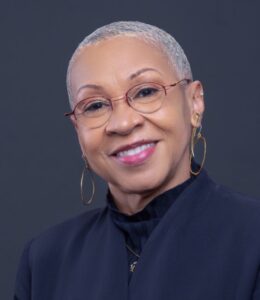In an attempt to ensure the Black ancestors see some form of reparations before they die, the reparations committee voted Thursday to move forward with funding mechanisms other than the cannabis tax.
The committee backed using money from the city’s real estate transfer tax and to consider using federal grants for the purposes of speeding payments to the aging elder population. The matter requires further approval from the City Council.
The committee also approved requiring all reparations grant applicants to have to identify a beneficiary and establish a power of attorney. During September’s committee meeting, the committee announced that six of the people designated as ancestors who were selected for Evanston’s Local Reparations Restorative Housing Program died before receiving their $25,000 grant.
Grant applicants who lived in the city between 1919 and 1969 are referred to as “ancestors” by the reparations committee. The deaths of ancestors also inspired a debate among the members. Reparations are currently funded by a tax on recreational cannabis and donations from the public. The rollout of funds has been slow, but ancestors, who are 70 years or older, cannot wait forever. Some committee members say it’s time to gather funding from avenues that hold more legal risks.
Increase reparation’s revenue streams
The committee is contemplating tapping into the city’s home rule sales tax and federal funding allocated to the city in addition to its tax on recreational cannabis to fund reparations.
But city officials have said that tapping into taxpayers’ funds will increase the odds of lawsuits against the reparations program. Some committee members say it’s worth the risk.
Since the onset of the city’s reparations program, Robin Rue Simmons, the committee’s chair, has suggested using funds from the graduated real estate transfer tax.
This tax is paid to the city government whenever property in its jurisdiction is sold. Real estate sales, similar to the war on drugs, have had a disproportionate impact on Evanston’s Black community, said Simmons, a real estate broker.
“There is a direct correlation between real estate and the harm that we have identified here in Evanston,” Simmons said.
The committee unanimously supported Simmons’ motion to move forward with using this tax as an additional revenue source for reparations.
The graduated real estate transfer tax is relatively new in the city. It was implemented shortly before the reparations program, and the tax hasn’t been used to fund anything other than the city’s general fund, said City Attorney Nicholas Cummings.
City staff and the committee members have said they are unaware how much revenue the graduated real estate transfer tax accumulates. Hitesh Desai, the City of Evanston’s CFO, intends to calculate the revenue from this tax and share the information with the committee before its next meeting.
The graduated real estate transfer tax is just one example of a tax within the umbrella of the city’s home rule sales tax. The committee instructed city staff to investigate if other taxes within the home rule sales tax also are optimal for funding reparations.
Cummings has supported using the graduated real estate tax to fund reparations, but he has said that using taxpayers’ funds, especially using federal funds, will open the door to lawsuits against the city on behalf of those who don’t support the reparations program. Therefore, he said, he opposed using the city’s general fund for reparations.
The committee discussed using funds from the Community Development Block Grant (CDBG) and the American Rescue Plan Act of 2021 (ARPA), which are both federal funds.
CDBG is intended to support low- and moderate-income people with housing and economic opportunities. The purpose of CDBG aligns with the reparations program’s purpose since it was created to assist with housing and economic development, committee members said.
ARPA was passed by Congress to assist with recovering from COVID-19. Evanston’s Black community was adversely affected by the pandemic, committee members said.
“We don’t necessarily have to specify race,” Cummings told the committee. “Federal dollars tend to not allow us to specify race. But we can always use a slew of different qualifications as a substitute for race.”
For example, if there is a federally funded program that the committee knows Black people in Evanston qualify for at a high rate, the city could allocate more of the CDBG and ARPA funds toward those programs.
But if the city allocates federal funding based on race, there is a possibility that the city will be sued, Cummings said. If Evanston is sued over its reparations program, dispersing funds to its recipients will most likely halt for however long the lawsuit takes.
“The idea of what’s called ‘taxpayer standing,’ which is anyone who pays taxes, that’s supposed to be for the benefit of the whole,” Cummings said. “If the city takes money that was allocated for that, and then redirects it into something that is not meant for the whole, then individuals could – not that they would or will – challenge the program. They can just say, ‘You are misdirecting my tax dollars.’”
There haven’t been any lawsuits so far against the city’s reparations program, Cummings said.
Committee member Claire McFarland Barber urged the committee to pursue funding that posed less of a risk to litigation, but committee members Carlis Sutton and Devon Reid, the Eighth Ward’s council member, disagreed.
“I think there is some risk with all of this, but I think I trust Evanstonians,” Reid said. “I do not believe that we have some great thing to worry about. I think we can do right by our ancestors, we can live up to our commitment, and we can be bold.”
Several ancestor recipients of the reparations grant have died before receiving funding, and Sutton and Reid argued this adds a sense of urgency to finish disbursing the grants to all of the ancestors.
“I do not want to be in a city that’s afraid of some racist asking about how his money is being spent,” Sutton said. “When one, the city’s already made a commitment to people like me. And two, there’s no way you could repay me or my family for the damage done.”
Simmons agreed.
“I favor boldness,” she said. But she also said the committee needed more information from Cummings about the risks of litigation. The city will provide a risk assessment at the next committee meeting.
The committee voted to ask the City Council for $5 million of the ARPA funds to be used for reparations.
Additional efforts to focus on Black ancestors
In more moves to prioritize the elder community, committee meetings will now be offered both in-person and virtually. Officials said community elders have asked for some time for the meetings to be available online. Now, residents can register in advance to watch the meetings via Zoom here.
Committee member Sutton also began the meeting reading the committee’s Ancestral Acknowledgement, which honors Black ancestors’ sacrifices and includes a hope for the nation to correct the sins of its past.
This meeting marks the first reading the acknowledgement, and committee members intend to take turns reading it at each meeting’s start.
New committee member seated
Evanston’s reparations committee recently welcomed a new member: Council Member Krissie Harris, 2nd Ward.
“I’m excited to be on this committee,” she said.
Town hall approaching
The city also will host a town hall meeting to explain the reparations framework in detail to residents, as well as to discuss other forms of reparations that have occurred in the history of the U.S. and elsewhere.
The town hall meeting will be held at the Second Baptist Church (1717 Benson Ave.) from 11 a.m. to 12:30 p.m. Oct. 22. Registration is available for the event at this link. The meeting is also available via Zoom, but online viewers won’t be able to interact with the committee members or other speakers.
Art collaboration
The reparations committee is collaborating with the Evanston Art Council in an effort to spark local youth’s interest in the city’s reparations program. The organizations are hosting a youth art contest. The contest asks Evanston residents or students between the ages of 2 and 22 to submit any form of art that answers the question: “What comes to mind when you think of reparations?”
Evanston youth organizations that serve youth 2-22 are eligible for the contest. Participants can email their art to artscouncil@cityofevanston.org or deliver it in person to the Morton Civic Center. The deadline for submissions is 4 p.m. Oct. 12. Contest winners will be awarded $200.
Documentary screening
The Chicago Film Festival will feature the documentary The Big Payback this month. It gives people another chance to watch the documentary, which follows Simmons’ journey as she fights for Evanston to become the first city in the U.S. to approve a reparations program for its Black residents.
The first screening is at 1 p.m. Oct. 22 at the Chicago History Museum. The second screening will be 2 p.m. Oct. 23 at the AMC River East, Screen 20. Virtual screening is also available for $17 from Oct. 13 to 23. Tickets for the in-person screenings are $20. To purchase tickets, visit the Chicago Film Festival website.




